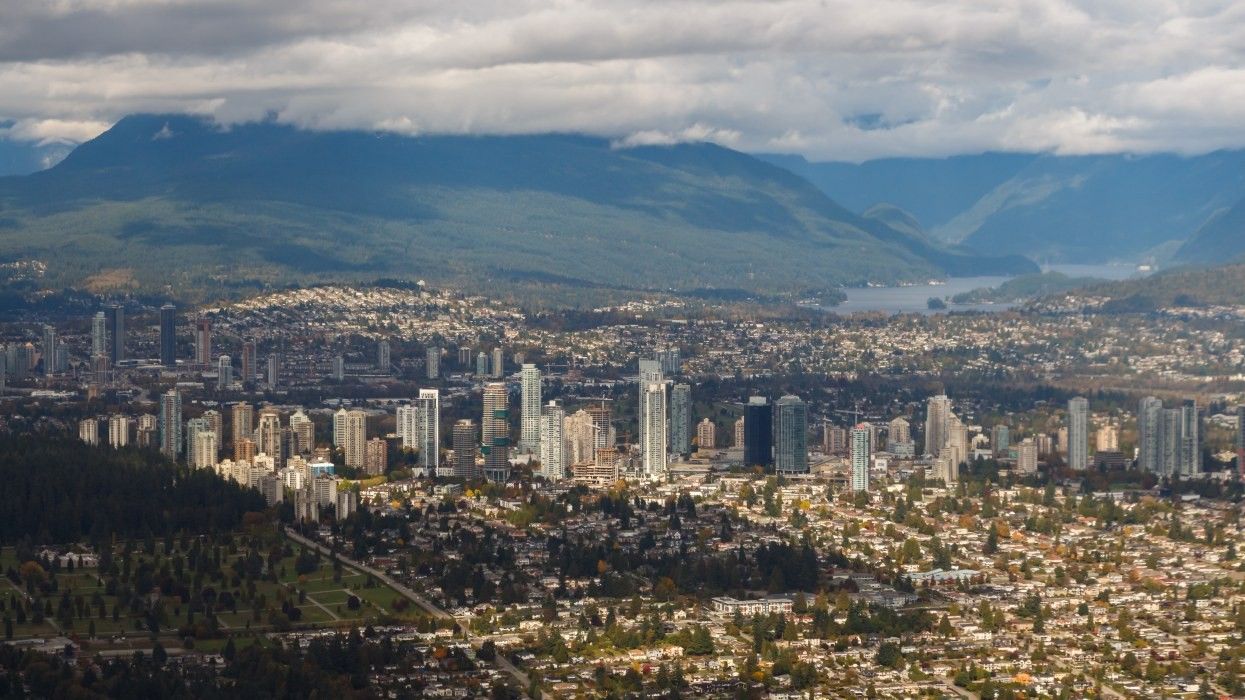Vancouver and Burnaby city halls have created two of the most rigorous tenant protection policies in North America. Tenant relocation and protection policies are aimed at curbing displacement as increasing numbers of tenants face redevelopment of their apartment buildings.
But these are new policies, and something of a housing experiment. As the redevelopments unfold, and tenants make use of their rights, the question of compliance will be put to the test, say experts.
In Burnaby, and within Vancouver’s Broadway Plan area, landowner-applicants that seek rezoning for redevelopment must offer to relocate their existing tenants and top-up their temporary rents so that they don’t suffer higher rents than they’d been paying. Tenants also have the option of taking a lump sum buyout. And once the new building is ready for occupancy, those eligible have the right of first refusal on a new apartment equivalent to their old one, at least in number of bedrooms. Their new apartment is likely to be smaller. In Vancouver, tenants get $750 to $1,000 in moving costs, and depending on income, they could get added benefits.
Vancouver’s Broadway Plan, which covers a swath of the city from Mount Pleasant to Kitsilano, contains 25% of the city’s rental stock. The City’s plan is to generate about 50,000 new homes over the next three decades in that area, much of it by redeveloping older rental buildings.
Robert Patterson, tenant advocate and lawyer for Vancouver’s Tenant Resource and Advisory Centre (TRAC), says that, to the city’s credit, Vancouver’s enhanced Broadway Plan policy is one of the strongest. However, there are questions around compliance that concern Patterson, who’s seen some “nightmare” scenarios in which tenants have been treated unfairly. They are highly dependent on the top-up, for example, because if they can’t pay their rent they can quickly be evicted, according to the law.
“It is naive to assume that a developer building a building in Vancouver, in 2024, or really any time, is going to engage in any behaviour that doesn't maximize their profit line,” says Patterson. “That's why these rules are in place in the first place... and why you also need monitoring and enforcement.”
Burnaby had its first setback a year ago, several months after tenants were evicted from a three-storey rental building in the Metrotown neighbourhood as part of a rezoning for a 24-storey tower. According to the City, the applicant, Kirpal Properties, defaulted on their agreement to top up the rents for 11 relocated renters. The City said it had to take over, using a bond posted by the developer to cover the top-ups (Kirpal argues that the arrangement was mutually agreed upon). The property, approved for 91 strata units and 29 replacement rental units, was put up for sale a year ago. Although the applicant has said the project is going forward, it’s not clear when the new tower will be completed, and what happens when the bond money runs out.
That has put tenants in a stressful situation, and put a robust policy to the test.
Burnaby, like Santa Monica, California, requires the holding of developer funds in an account to help ensure that obligations to tenants are met, according to “Enforcing Tenant Relocation Rights, A Catalogue of Tools for BC Municipalities,” prepared by the University of BC School of Community and Regional Planning, TRAC, and the Fair Housing Force.
“Prior research and community engagement has revealed deficiencies in the enforcement of TRPPs in BC, resulting in a lack of justice for the tenant,” says the report.
Vancouver does not require a bond from a developer, but interim director of planning Matt Shillito said that the door is open for additional tweaks to the policy. The biggest concerns are if a developer pulls out of a project for any number of reasons. In today’s economic climate, several projects around Vancouver have gone into foreclosure, for example.
“While rare, it is not unheard of for projects to be stalled or cancelled due to various factors,” Shillito said in an email. “If this were to occur, next steps would be dealt with on a case-by-case basis as options for tenants will heavily depend on what stage the development is in, and the reason for the delay or cancellation. And response will be guided by the TRPP objective of protecting tenants. For example, if a property is sold, the new owner would assume the responsibilities of the TRPP, and staff would work with both the old and new owner on this transition.
“If an application is withdrawn, then tenants may be able to move back to their old unit. If the building has already been demolished, then the focus would be on providing assistance to the tenant to find permanent alternate accommodation based on their priorities and needs.
“A major factor in mitigating against the risk of tenants’ rent top-ups being impacted by project delays and cancellations is the time when they move out of the project,” said Shillito.
“The later in the process, the more certainty there is that a project will proceed. Because of this, staff having clarified that the rent top-up period begins once the project has reached the four-month notice to end tenancy stage, which is the time when we can reasonably expect projects to proceed.”
The City’s Broadway Plan also requires developers to “show proof of assistance in securing a tenant’s needs,” according to the report. “This presentation of proof, unlike the city-wide legislation, will need to be provided before redevelopment is approved, and will ensure that redevelopment applicants fulfill their duties to assist with relocation.”
As well, it’s likely the applicant will comply since the city could withhold any permits if a developer doesn’t fulfill their obligations, says developer and tenant relocation coordinator James Tod. In the case of the Broadway Plan, the landlord-applicant would enter into an agreement with the city of Vancouver and promise to pay the amounts owed to the relocated tenants, he says. If the landlord-applicant were to default on those payments, the City would seek recourse through the agreement, which stays on the property title. He says the incentives for compliance are there.
“If there's, for any reason, things that are not being followed, they can withhold essentially any permit, rezoning, development permit, building permit, demolition permit, occupancy permit. So, you won't even be allowed to get occupancy if you're not following the requirements of your on-title agreements,” he says.
The first tenant move-back is happening soon in Burnaby. The 32 renter households who’d moved from their apartments are soon returning to their new homes at 6521 Telford Ave., where 54 rental units were demolished to make way for a 332-unit condo tower with a 66-unit six-storey replacement rental building.
Still, Patterson believes that cities should ensure there’s an agreement between developer-applicant and tenant. That’s one way to ensure a securer legal standing for the tenant, he says.
“While the City definitely needs the power to enforce these agreements, I think it would also be of benefit to tenants for developer landlords to have to enter into some kind of agreements with them as well, so at least they have the option of trying to enforce those agreements themselves, without the legal rigmarole of figuring out how to sue to enforce a TRPP as a third-party beneficiary,” he says.
Overall, he added, these are good concerns to be having, because it means there is a strong policy to work with, even if it needs fine tuning.
“I imagine there's much more compliance than there is non-compliance, if nothing else, because the rules are already pretty robust – and that's good.”





















